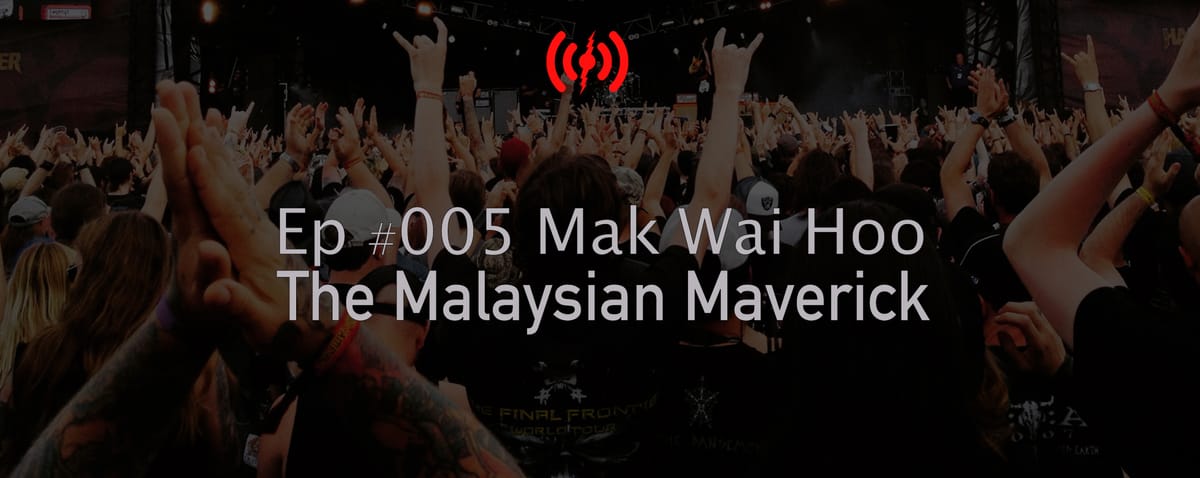005 - Mak Wai Hoo
Strumming the Strings of Change: Mak Wai Hoo's Fight for Musical Diversity

In an era where music often serves as both a cultural touchstone and a vehicle for societal change, few stories encapsulate this duality as vividly as the journey of Mak Wai Hoo and his colleagues. From our interview, it is clear that Mak’s path through the music industry is marked by a relentless pursuit of artistic integrity and social progress.
Our conversation began with a reflection on past encounters, notably our meeting at Lucfest, then GMA in Taiwan and subsequent interactions at various music events across Asia. These meetings were more than just professional engagements; they were moments of shared vision and mutual inspiration, laying the groundwork for collaborative efforts aimed at nurturing the music community.
Mak’s story, however, is not just about the music. It is a tale of how a small group of passionate individuals attempted to reshape the cultural landscape in Malaysia. Beginning in the late 1990s, amid a backdrop of political upheaval and economic crisis, Mak and his friends launched a movement through their label, Huang Huo, or “Yellow Fire.” This initiative was born out of a desire to challenge the musical status quo, introducing alternative and underground music to a predominantly mainstream Chinese audience.
The mission was ambitious and fraught with challenges. The label aimed to promote a DIY ethic, organizing gigs and producing music with minimal resources. They sought to bridge cultural divides and foster a more inclusive music scene, despite facing resistance from both the mainstream media and some segments of the music community.
Mak recounted the struggles and internal conflicts that arose from differing visions within their group. These tensions culminated in a pivotal trip to Beijing, intended as a cultural exchange but ultimately revealing deep-seated issues that led to the disbanding of Huang Huo. Yet, from this dissolution came the genesis of Soundscape Records, Mak’s next venture, which continued the mission of cultivating the local music scene, albeit with a broader, more inclusive approach.
Our discussion highlighted the evolution of Mak’s efforts from a small, radical movement to a more structured and expansive operation. Soundscape Records not only supported Chinese indie bands but also embraced a wider array of artists, organizing larger events and festivals that brought together talent from across the world. This inclusive strategy proved instrumental in fostering a diverse and vibrant music community.
Mak’s journey underscores the transformative power of music and the resilience required to drive cultural change. His experiences reflect the broader narrative of how grassroots initiatives can grow into significant cultural movements, impacting not just the local scene but resonating across borders. As we looked into these themes, it became evident that Mak’s story is a testament to the enduring spirit of innovation and activism within the music industry.
